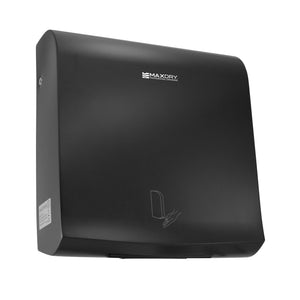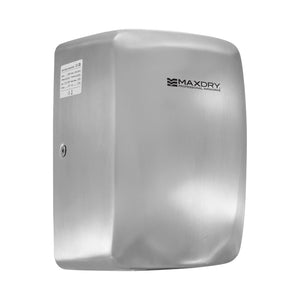Renewable Energy Options for Homes
In a time when sustainability is becoming more and more significant, many homeowners are investigating renewable energy choices to reduce their carbon footprint and save money on utility costs. In addition to helping the environment, installing renewable energy in your home might result in significant financial savings over time.
Let's look at the best options for homeowners looking to power their homes with renewable energy, such as residential wind turbines and solar panels.
Benefits of Home Renewable Energy Solutions
Planning a home renewable energy system is a complex process that includes analyzing your energy use, finding the best technology for your location, and determining whether to run independently or link to the grid. This planning step makes it easy to select a solution that satisfies your needs and maximizes efficiency.
Before even incorporating renewable technologies, energy consumption may be decreased by using eco-friendly products such as energy-efficient hand dryers. A smaller renewable energy arrangement may be more economical when energy use is kept to a minimum.
What are the benefits of renewable energy for houses?
- Lower Prices: Solar panels and wind turbines have the potential to reduce electricity prices and generate additional cash by selling excess power back to the grid.
- Environmentally Friendly: Renewable energy improves the environmental friendliness of homes by reducing air pollution and carbon emissions.
- Energy Independence: By using gadgets like solar panels and batteries, homes may lessen their reliance on utilities and maintain power during blackouts.
- Improved Worth: Because they save energy, homes with renewable energy systems draw in buyers and fetch better prices when they sell.
- Minimal Upkeep: Wind and solar systems last 20 to 30 years and are low maintenance and long-lasting.
-
Governmental Rewards: Renewable energy is more economical because of tax credits and subsidies, and net metering can offer credits for additional electricity.
Best Renewable Energy Sources for Houses
Solar and wind power are the most popular renewable energy sources for residential use. Both provide distinct advantages, and the decision frequently comes down to your location, energy requirements, and financial constraints.
1. Solar Power for Residential Homes
One of the most often used renewable energy sources is still solar electricity. Homeowners may become completely self-sufficient or augment their grid-based power by installing solar panels, which turn sunshine into electricity. With declining costs and government incentives, installing solar panels at home has become more affordable and appealing to many.
Solar energy is minimal maintenance, dependable, and clean. It may drastically save power costs and perform best in locations with steady sunshine. Homeowners may also store extra energy for later use with residential solar battery storage systems, giving them more flexibility and backup power in case of emergencies.
Because solar energy lowers the total load on the system, many homeowners see significant expense savings when they combine solar energy with energy-efficient hand dryers and other energy-saving measures.
2. Using Wind Energy for Home
One of the best eco-friendly home energy solutions, home wind turbines, can be a good option for people who live in places with a steady wind. These systems, which transform wind energy into electrical power, are a great choice for houses located in wide spaces or rural locations with few obstructions.
Wind energy may generate electricity day or night and is plentiful in many areas. For anyone searching for off-grid renewable energy solutions, it's the perfect choice. Think about things like sunshine hours and local wind speeds when choosing between solar and wind energy for residences. In certain situations, integrating both into a hybrid system can provide more reliable energy generation all year round.
3. Micro Hydropower Systems
A micro hydropower system may provide energy all year round if you have access to a running water source. Although less popular, this might be a dependable choice for homes close to rivers or streams.
4. Solar Water Heating for Homes
Another sustainable energy option for houses is solar water heating. It reduces the need for traditional water heaters by harnessing solar energy to heat water for household usage. They may significantly save energy consumption because heating water is often one of the biggest energy expenses in a house. Solar water heaters provide a cost-effective and environmentally friendly way to provide a steady supply of hot water by harnessing sunlight, especially in sunny regions.
5. Geothermal Energy
Geothermal systems employ the earth's consistent subsurface temperatures to efficiently heat and cool homes. It works like a ground-source heat pump, which moves heat from your house to the earth. Geothermal systems are a long-term investment for homes seeking an eco-friendly heating and cooling solution since, despite their higher initial installation costs, they offer considerable energy savings over time.
6. Biomass Energy
Biomass energy is produced by burning organic materials to produce heat, such as wood pellets, agricultural waste, or other plant matter. It is widely used as a green alternative for home heating in wood-burning stoves and biomass boilers. Biomass offers a way to repurpose waste materials and reduce reliance on fossil fuels, even if it is more commonly used for heating than electricity generation.
7. Power-Saving Hand Dryers
One of the green energy options for homeowners is the use of hand dryers. Since energy-efficient hand dryers emit fewer carbon emissions than paper towel manufacture and disposal, homeowners may reduce their environmental impact by choosing these tools. Hand dryers for eco-friendly homes are a good option for anybody wishing to improve the sustainability of their house because they not only save energy but also blend in perfectly with modern bathrooms and function silently. Meanwhile, you save the environment, not speaking about the cost savings that come with energy-efficient hand dryers. So, need the best hand dryers for residential use? Don’t hesitate to check out our collection.
8. Renewable Energy Systems That Are Hybrid
Multiple renewable energy sources, such as wind turbines and solar panels, are combined in hybrid systems to produce a more dependable power source. In situations where one energy source could be erratic, such as overcast or quiet days, these systems are very helpful. Hybrid systems may optimize energy output and provide a consistent supply all year long by diversifying their energy sources. For homes trying to strike a balance between their energy demands and the available natural resources, this strategy may offer more flexibility and efficiency.
How to Switch to Renewable Energy at Home
Analyzing your present energy use and assessing the viability of various choices are the first crucial stages in making the switch to renewable energy.
- Evaluating Energy Needs: To determine your patterns of power usage, perform a load analysis. The amount of electricity you need to create may be ascertained by keeping track of appliance wattage and comprehending seasonal changes.
- Examining Local Laws: It's important to review local laws, ordinances, and homeowner rebates for renewable energy before putting in any kind of system. The architecture of your system and the kind of technology you can employ may be impacted by these rules.
- Selecting the Proper Installer: Choosing a certified installer guarantees that your wind turbine or solar panel installation at home satisfies safety regulations and qualifies for incentives.
Residential wind turbines or solar panels are examples of home renewable energy solutions that offer a sustainable means of cutting expenses, achieving energy independence, and improving the environment. For today's homes, renewable energy is a smart investment because of these advantages.
Related Products
-
ThinMAX High Speed Hand Dryer - Black Coated Stainless Steel

- Regular price
- $427.60
- Sale price
- $427.60
-
SpaceMAX High-Speed Vertical Hand Dryer, Brushed Stainless Steel (Satin)

- Regular price
- $279.50
- Sale price
- $279.50



